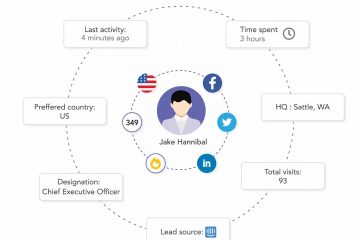Mixpanel vs Amplitude: Your Best Bet In 2023
Product analytics, web analytics, and customer journey tracking are crucial for businesses but the industry has gone through a significant shift in the last few years. First, there have been a lot of concerns regarding privacy and data storage which is pushing the industry towards a cookieless future. Google is already shutting down Universal Analytics. Second, technology has progressed so much that your options for product analytics will look indistinguishable from one another.
So, this makes your choice of product depend on a few specific factors, relying on the problems you want to solve.
So, which tools are the best for B2B product analytics and customer journey tracking? Mixpanel and Amplitude are the two names you expect to see in your research. But, which of them is better? Is there a better alternative to both?
Let’s dive in!
What is Mixpanel?
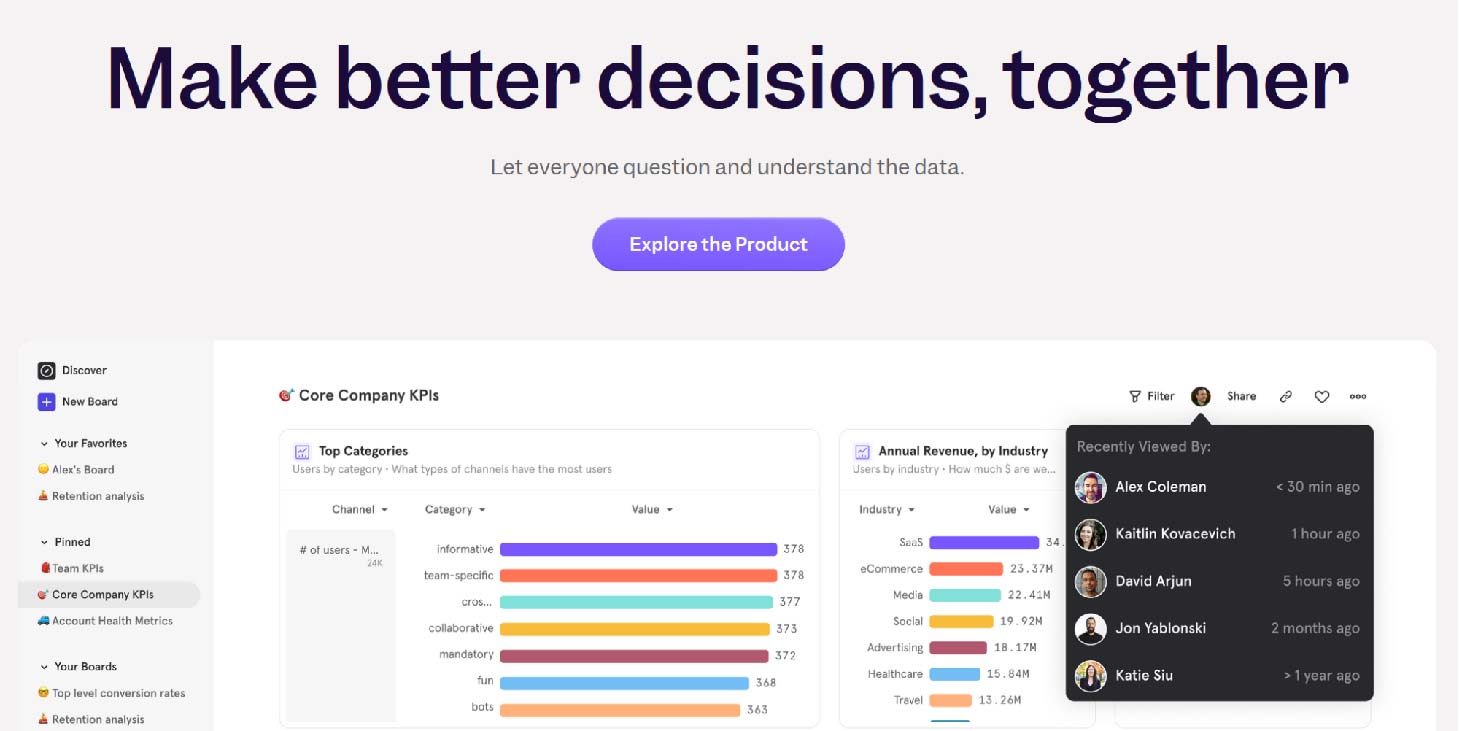
Mixpanel is a powerful analytics tool that helps businesses understand how users interact with their websites and mobile applications. It provides insights into user behavior, engagement, conversion rates, and more.
Mixpanel offers a range of features and capabilities to track and analyze user activity. It allows you to set up event tracking. This means you can monitor specific actions or events that users perform within your application or website.
For example, you can track when users sign up, make a purchase, click on certain buttons, or perform any other custom-defined actions.
In addition to event tracking, Mixpanel also provides user segmentation, cohort, and funnel analysis.
Mixpanel’s dashboard provides visualizations, reports, and real-time data updates, allowing you to monitor user behavior and metrics effectively. It also offers features like A/B testing, notifications, and push notifications to engage with users and test different variations of your product or marketing campaigns.
What is Amplitude?

Amplitude is a comprehensive analytics platform that helps businesses analyze and understand user behavior across their digital products and services. It provides valuable insights into user engagement, retention, conversion, and overall product performance.
Amplitude’s focus is on helping businesses leverage behavioral data to make data-driven decisions and drive growth. Amplitude allows you to collect and visualize data from various sources, such as websites, mobile apps, and other digital platforms.
One of the key strengths of Amplitude is its ability to perform advanced behavioral analysis. It provides tools for user segmentation, cohort analysis, and funnels.
Cohort analysis helps you track and compare the behavior of specific groups of users over time. Funnels in Amplitude allow you to visualize and analyze the steps users take to complete specific actions or conversions.
Amplitude’s platform provides a user-friendly interface with customizable dashboards, visualizations, and reports. It offers real-time data updates, enabling you to monitor user behavior and metrics as they happen.
Amplitude also supports collaboration and sharing of insights with team members, facilitating data-driven decision-making across organizations.
Feature Comparison
In this section, we will pit the two tools against one another. The features and capabilities we will compare here are the most relevant when for analytics, event tracking, and overall customer journey tracking.
Event Tracking and Data Collection
Amplitude emphasizes a user-centric approach to event tracking, focusing on tracking user behavior over time and providing features like user segmentation and cohort analysis.
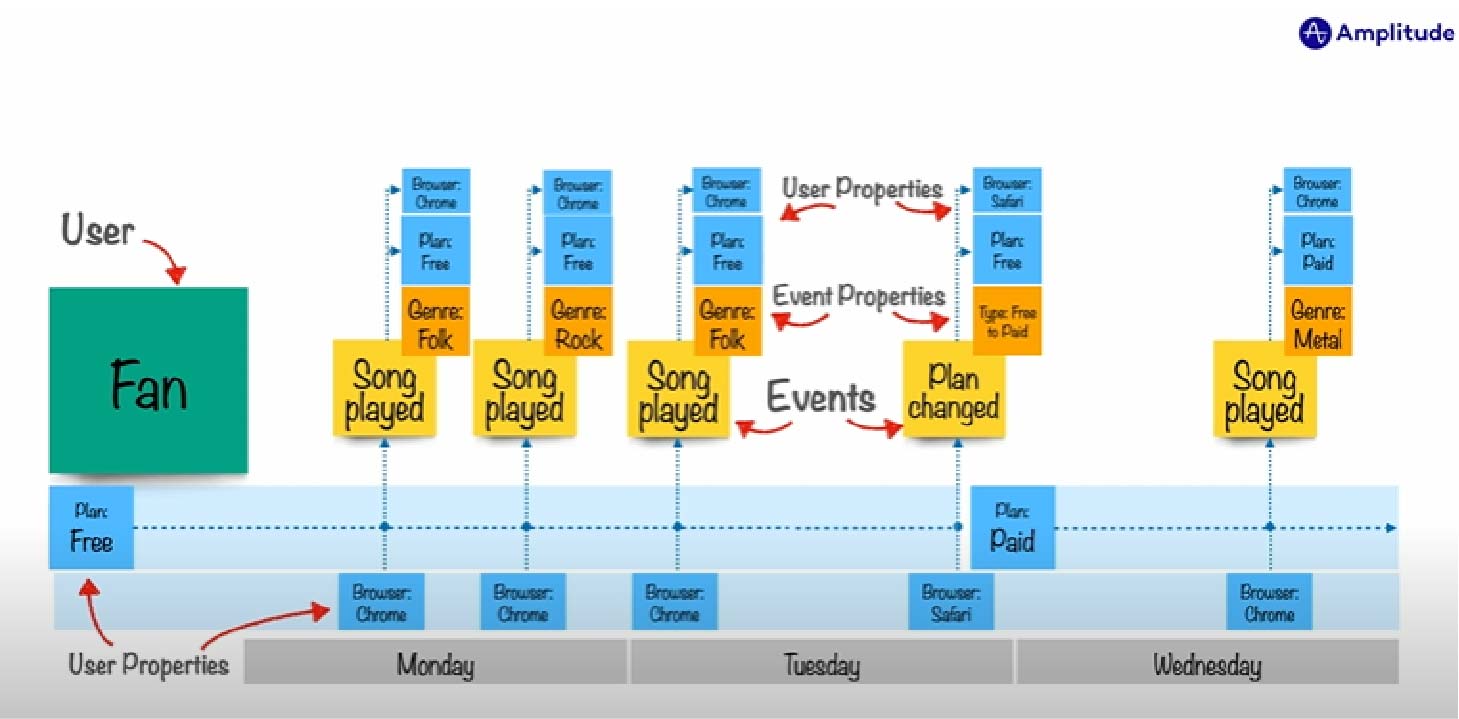
Source: Amplitude
Mixpanel offers a more event-centric approach, allowing for detailed event logging and analysis.
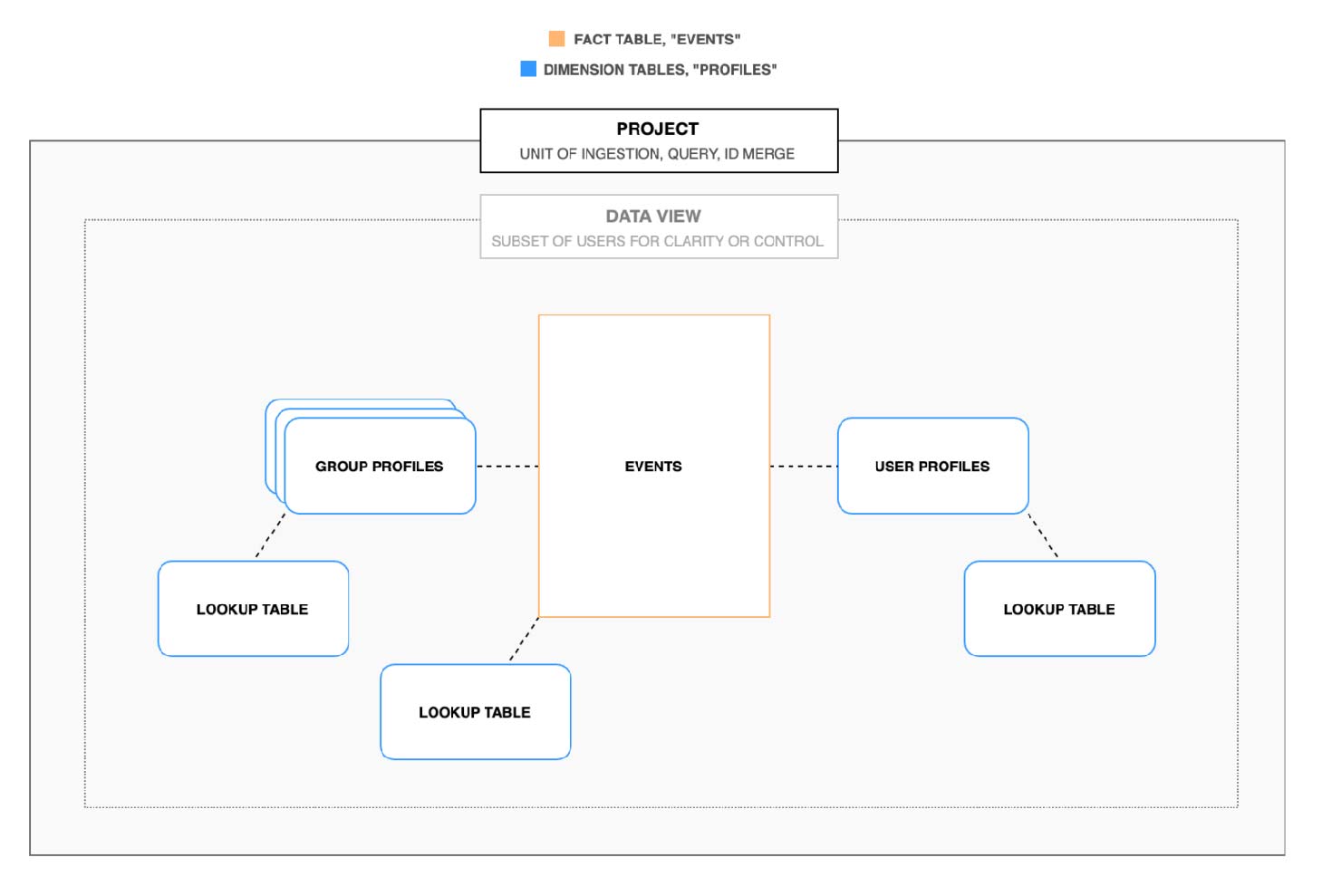
Source: Mixpanel
Both tools provide SDKs for data collection from various platforms. Amplitude offers a wider range of SDKs and supports server-side data ingestion APIs. Mixpanel offers customizable event tracking capabilities.
Funnels and Conversion Analysis
Amplitude and Mixpanel differ in their approach to funnels and conversion analysis. Amplitude focuses on user-centric funnel analysis, allowing for a detailed analysis of user behavior and conversion rates.
Mixpanel offers more flexibility and customization in defining complex event sequences and conditions within the funnel.
Cohort Analysis
Amplitude and Mixpanel differ in terms of cohort analysis. Amplitude provides robust features for analyzing user cohorts over time. This allows you to track and compare the behavior of specific groups of users.
Mixpanel also offers cohort analysis capabilities, allowing you to study the behavior of user cohorts. However, Amplitude’s focus on cohort analysis is more pronounced, offering advanced segmentation and visualization options.
Retention Analysis
Amplitude and Mixpanel differ in their approach to retention analysis. Amplitude provides comprehensive features for tracking and analyzing user retention rates over time.
It enables you to understand how different user cohorts retain and engage with your product, allowing you to identify factors influencing retention and make informed decisions.
Mixpanel also offers retention analysis capabilities, allowing you to measure and analyze user retention.
However, Amplitude’s focus on retention analysis is more prominent, offering advanced segmentation and visualization options specifically tailored for analyzing and improving user retention.
A/B Testing and Experimentation
Amplitude and Mixpanel differ in their approach to A/B testing and experimentation. Amplitude offers native A/B testing capabilities within its platform, allowing you to create and run experiments to test different variations of your product or marketing campaigns.
It provides statistical significance calculations and comprehensive analytics to evaluate the impact of different variants on key metrics.
Mixpanel, on the other hand, does not offer built-in A/B testing functionality but provides integrations with third-party A/B testing tools.
Custom Dashboards and Reporting Integrations
Amplitude and Mixpanel differ in their approach to custom dashboards and reporting integrations. Amplitude offers a user-friendly interface that allows you to create customizable dashboards with visualizations and reports tailored to your specific needs.
It provides flexibility in organizing and presenting data, empowering you to build personalized views for different stakeholders.
Mixpanel also offers customizable dashboards, but its focus is more on providing powerful analytics capabilities rather than extensive dashboard customization.
Both tools offer integrations with reporting tools like Tableau and Google Data Studio, allowing you to export data for further analysis and reporting.
With the features compared, let’s dive into another important aspect, the pricing!
Pricing Comparison
Amplitude
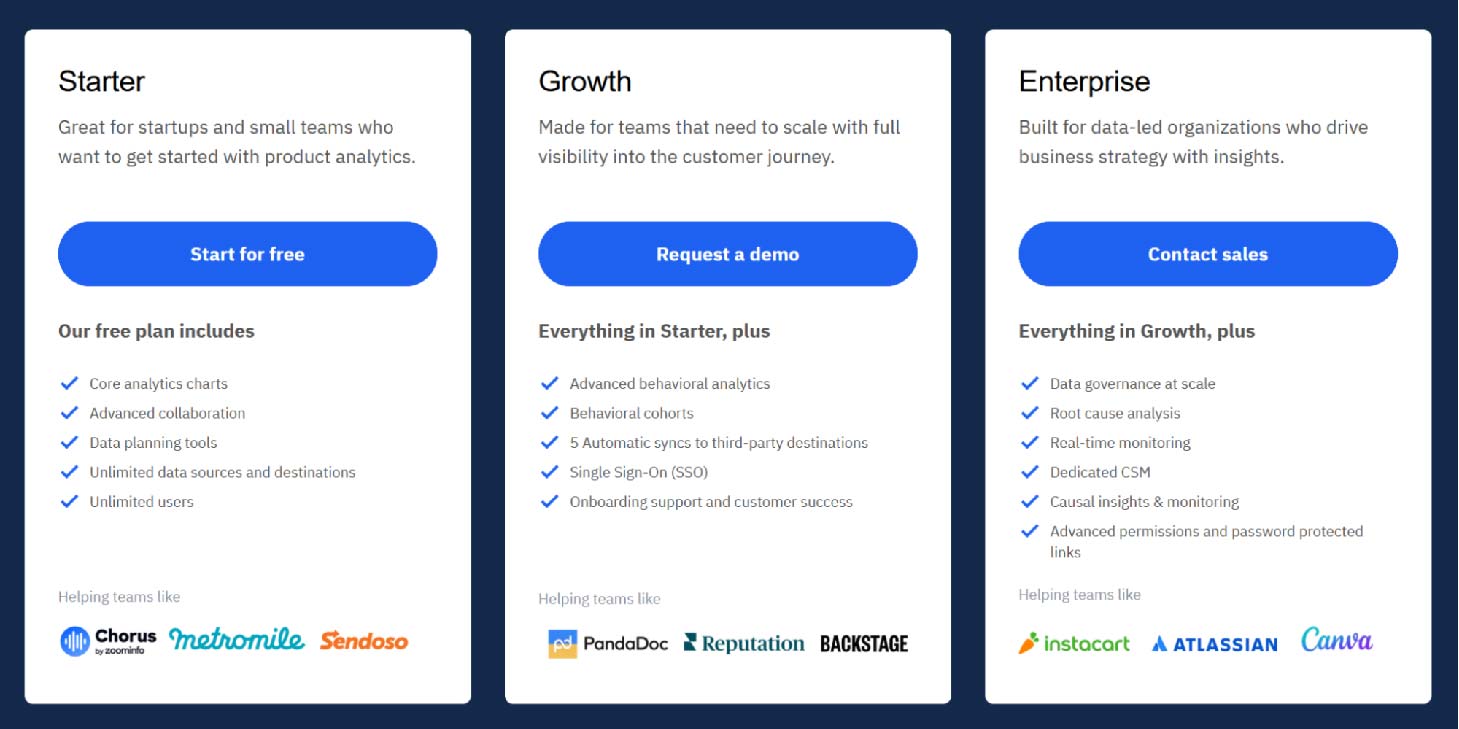
Source: Amplitude
Amplitude has decided not to reveal it’s pricing. So, as you might have guessed already, the pricing is sure to be on the higher side. Userpilot claims that the pricing for the Growth plan starts at $999 per month.
The good thing is that they do provide a free plan so you can try everything before you make a purchase.
Mixpanel
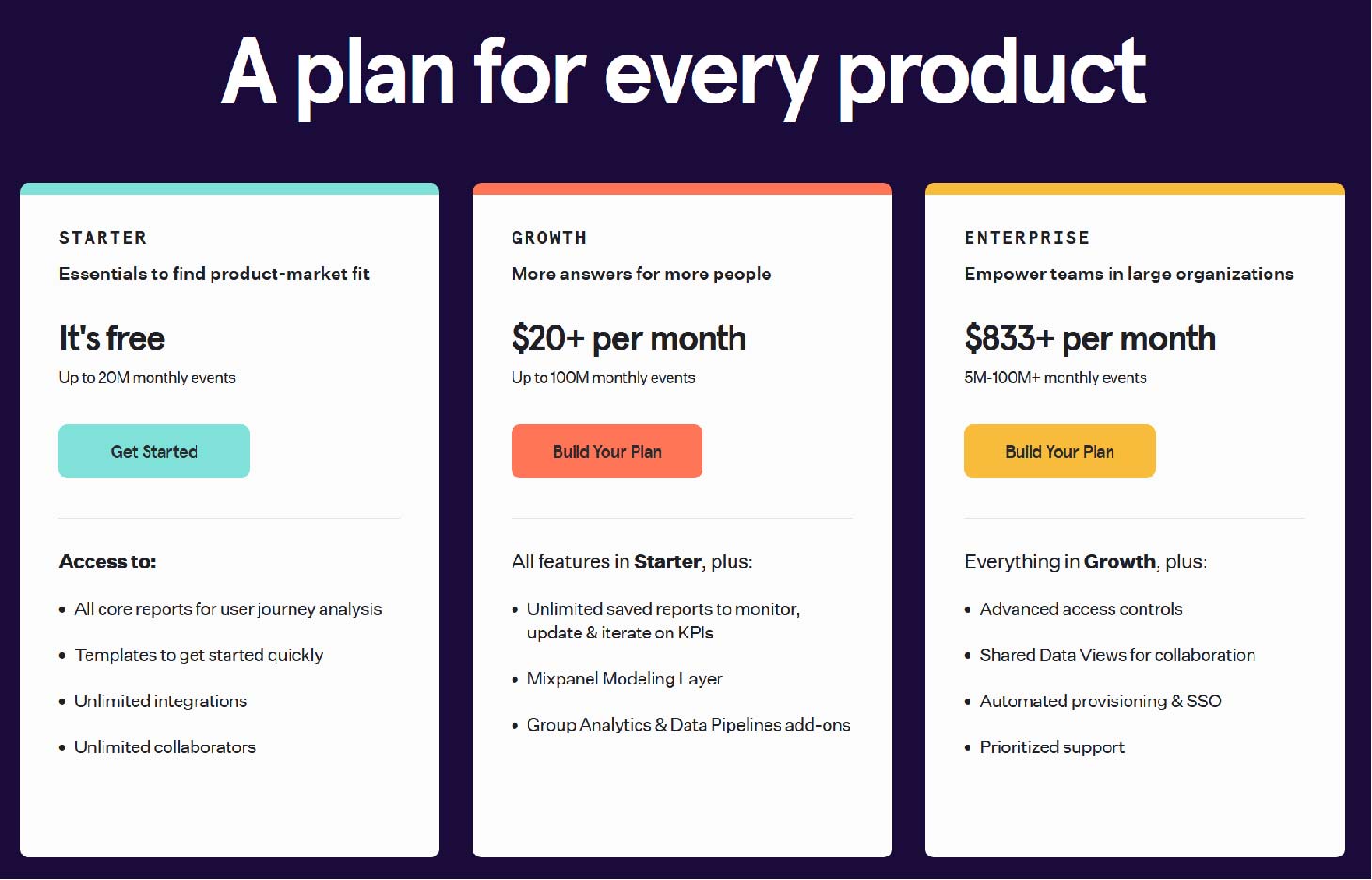
Source: Mixpanel
Mixpanel has a very different model tailored for self-service. They not only offer a free plan but their paid plans start at just $20 a month.
Drawbacks/Pros and Cons
We’ll glance over the key points quickly with a pros and cons shootout.
Pros of Amplitude:
- User-Centric Analytics: Amplitude focuses on user behavior, allowing for a deep understanding of user interactions and preferences.
- Advanced Cohort Analysis: Amplitude provides powerful cohort analysis features, enabling the tracking and comparison of user cohorts over time.
- Seamless A/B Testing: Amplitude offers built-in A/B testing capabilities, making it easy to run experiments and optimize product variations.
Cons of Amplitude:
- Event Customization Limitations: Amplitude may have limitations in terms of custom event tracking and flexibility in defining events.
- Dashboard Customization: While Amplitude offers some level of dashboard customization, it may not provide extensive flexibility in creating custom views.
- Learning Curve: New users may experience a learning curve to fully utilize Amplitude’s features and get the most out of the platform.
- Higher Costs: Amplitude’s pricing model is focused more on the side and might be considered high by SMBs.
Pros of Mixpanel:
- Event Customization: Mixpanel offers extensive event tracking customization, allowing for granular and detailed tracking of user actions and behaviors.
- Powerful Funnel Analysis: Mixpanel provides comprehensive funnel analysis capabilities, enabling the visualization and optimization of user conversion paths.
- Flexible Reporting: Mixpanel offers flexible reporting options and integrations with external tools like Tableau and Google Data Studio for advanced reporting and data visualization.
- Cheaper Costs: Much better cost of entry and affordable for all types of businesses.
Cons of Mixpanel:
- Lack of Native A/B Testing: Mixpanel does not have built-in A/B testing capabilities, requiring integration with third-party tools for experimentation.
- User Segmentation Limitations: While Mixpanel provides segmentation options, the level of granularity and flexibility may be more limited compared to other tools.
- Dashboard Customization: Mixpanel’s dashboard customization options may not be as extensive as some other analytics platforms, limiting the ability to create highly tailored views.
Salespanel as an Alternative to Mixpanel and Amplitude
Both Mixpanel and Amplitude are good for extensive product and behavioral analytics. However, if you are looking for a solution that offers comprehensive B2B customer journey tracking, marketing analytics, and integration with your sales and marketing operations, Salespanel is a suitable choice.
When it comes to tracking, Salespanel only uses first-party cookies and tracks a user only after he/she consents. All tracking operations are GDPR compliant and Salespanel also overcomes the 7-day cookie expiry by helping you set up first-party server-side tracking. Overall, Salespanel is ready for the cookieless future.
While in traditional analytics, you get holistic data for analytics, Salespanel provides you analytical data that actually connects with your customers. This is ideal for B2B businesses who want to use buyer intent data to score leads, automate workflows, or personalize their marketing and sell better. The analytical data along with their lead scores can be sent to sales reps who can use it to understand behavior and intent.
With transparent pricing, a 14-day free trial is a click away!
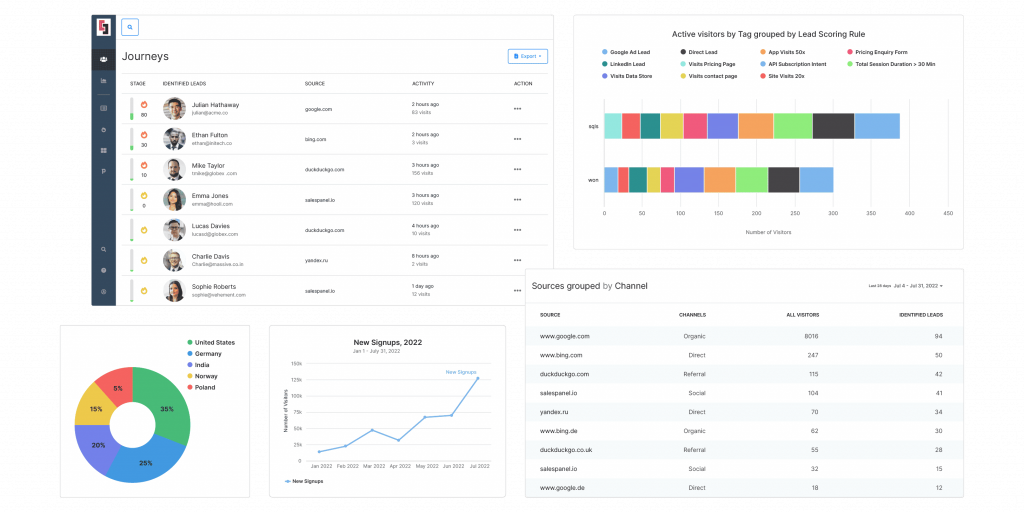
Sell more, understand your customers’ journey for free!
Sales and Marketing teams spend millions of dollars to bring visitors to your website. But do you track your customer’s journey? Do you know who buys and why?
Around 8% of your website traffic will sign up on your lead forms. What happens to the other 92% of your traffic? Can you identify your visiting accounts? Can you engage and retarget your qualified visitors even if they are not identified?


